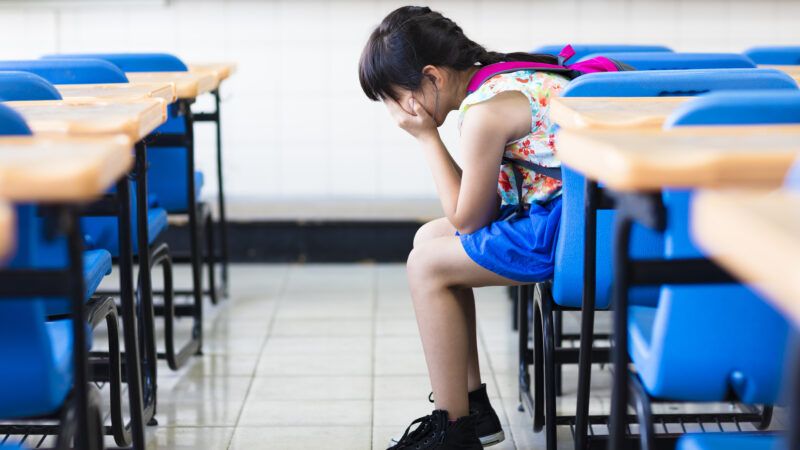Girls May Have Been Hit Hardest by Pandemic Learning Loss
New research indicates that, particularly in math, girls' test scores plummeted when compared to boys.

It's no secret that months of pandemic-era lockdowns led to dramatic learning loss among American children. What has surprised researchers is exactly which students were most affected, especially in math. While girls have long academically outperformed boys on several metrics, new research indicates that female students experienced much steeper learning loss than their male classmates.
A Wall Street Journal article published this week summarized several recent studies that measured post-pandemic learning loss. For decades, eighth grade boys' and girls' math scores on the Trends in International Mathematics and Science Study (TIMSS) assessment tracked closely, with girls just behind their male classmates. In 2019, girls even slightly outperformed boys. However, when students were tested again in 2023, not only did students of both sexes lose significant ground, but girls dove below boys.
In 2019, the average girl scored a 517 on the assessment, which is measured on a 1000-point scale, and boys scored a 514, just a three-point difference. In 2023, boys' scores had dropped 19 points on average, while girls' scores dropped an astonishing 36 points on average.
"Since 2019, girls' test scores have dropped sharply, often to the lowest point in decades. Boys' scores have also fallen during that time, but the decline among girls has been more severe," writes education reporter Matt Barnum. "Boys now consistently outperform girls in math, after being roughly even or slightly ahead in the years before 2020. Girls still tend to perform better in reading, but their scores have dropped closer to boys."
Why is this happening? Researchers aren't sure. One theory is that girls may have taken on more domestic tasks than boys during pandemic lockdowns (for example, taking care of younger siblings) and thus may have missed out on more learning. Another is that girls tend to have fewer behavioral issues, meaning that struggling girls weren't called to educators' attention in the same way many boys were.
"If my child was wild and throwing desks around the room, somebody would pay attention to them," one parent told the Journal.
But whatever the source of the gender gap, such a stark divide in learning has researchers and education professionals worried.
"They're still struggling," Ramona Fittipaldi, a high school math teacher in Manhattan told the Journal. She said her ninth grade and 10th grade geometry students—who would have been in late elementary school during lockdowns—are particularly struggling. "They're really relying on tricks more than fully understanding the way they would have done prepandemic."


Show Comments (52)